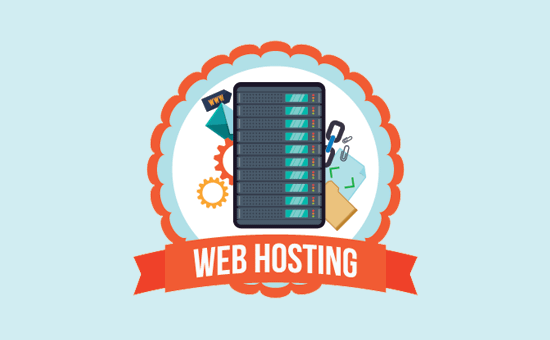Where you host your website can be the difference between your site’s smooth operation and a lot of needless technical headaches.
This is an important decision! So well done for doing your research first.
But in this day and age you have a lot of different web hosts to choose from, so how do you know which host is best for you?
Let’s cut out the marketing and get the information you need to make an informed decision of the type of hosting you need.
Why Your Hosting Choice Matters
Building your site on the wrong host is like building your home on unstable soil, things look good at first, but eventually, cracks start to appear and your site could suffer downtime and other user issues.
From a web site perspective, these cracks can range from intermittent technical defects to the inability to implement new content or features on your site.
It is important to understand that not all web site hosts on the market are created the same way.
To be honest, creating and managing a website hosting platform is technically difficult. Quite a lot is done behind the scenes to get the content from your site to be displayed on your visitor’s browser. To get it all working properly requires a significant investment in infrastructure.
The problem for many of us as consumers is that some companies are far better at marketing than managing technical complexity.
If you want to know how to look through marketing and understand how to find the best hosting platform for your business, then read on.
Types of Hosting
Before you can choose the appropriate website host (and plan) for your website, you need to understand the different types of hosting available and what is best for your site.

Shared Hosting
In shared hosting, each physical server (think of a very powerful PC) is used to serve many websites. All the files for each web site are in one box, and the memory and processing power of the box must be shared between all the sites that are on the one server.
It’s like running multiple programs on your own computer. Unless you run too much, and as long as each of them behaves well, then everything works well. However, if there are too many open programs, or if you start to bite in processing power or memory, they all slow down to a stop.
The same is true for all websites on the shared server.
When viewing shared hosting, you need to ensure the following:
- The average number of sites on each server is small, less than 150 is great. If you have more than 1,000 people, you could experience performance issues.
- Powerful account separation is being implemented. If malware can jump from one site to your site through the file system on the server, then the best security of your site will not help.
Our cPanel Shared Hosting plans start from $1.29 per month and offer unmetered traffic, industry leading uptimes of 99.97% and award winning 24/7 customer support in case anything should go wrong.

Virtual Private Server (VPS)
With Virtual Private Server (VPS) hosting there are still a lot of websites in one box, but you have access to dedicated portions of processing power and memory (other sites can’t steal resources from you).
In essence, you get your own (virtual) mini server, just with less processing power and memory than a full server. The amount of processing power and memory depends on how many other sites are hosted on the same server and your package. We have a range of VPS plans available starting from $15 a month offering up to 8GB of ram and unlimited bandwidth.
The advantage of VPS hosting is that no other site on the same server will slow down your site by taking up all the resources, as can happen with shared hosting.
On the downside though, if you receive a lot of traffic spikes, there is no additional capacity available to the site, as you can only use your allocated resources. So be careful if you are planning to launch a product, post a guest, etc. as you might crash your own site!

Dedicated Server
Dedicated Server hosting uses only physical servers. You can use all of processing power and memory as needed as you have access to the full server.
Typically, the host connects the server box directly to the internet and performs hardware maintenance, but all other work is done by the user, including operating system and web server settings.
So, this type of hosting is probably not for you unless you don’t have your own technical support department or you’re a technical guru cursed to a masochist.
However we offer managed Dedicated Server plans, so you can get all the power of a dedicated server, but without the technical knowledge.

Managed WordPress Hosting
Managed WordPress hosting has become very popular in the last few years and for good reason.
The popular solution came to be as a need for a high-performance dedicated server with all the technical details managed arose with rise in popularity of WordPress sites.
The level of management varies between providers, for example our Managed WordPress plans start at $4.49 a month, include server settings, updates, installation and even includes free premium templates and plugins to make sure your site gets off to the right start. A well-managed host will take care of security, backups, and updates.
The drawback is that you are often limited to the themes and plugins you can use on your site, so in the unlikely case that you don’t like the options provided by the host you’re stuck. This isn’t the case with our plans, you are completely free to add, remove or edit the included plugins and themes as much as you like.

Business Hosting
Business Hosting is a relatively new concept, offering more power than traditional shared hosting, but without the cost and maintenance of a VPS or dedicated server. Aimed at online businesses who need more power to ensure their site is fast and responsive at all times Business Hosting could be the perfect solution for many small to medium sized businesses.
Business hosting plans vary quite a lot from host to host, our plans start at $14.99 and offer dedicated resources for your site, come with a industry leading uptime of 99.98% uptime and even come with a 1-year SSL certificate to show your customers that your site is genuine.
In a nutshell business hosting (at least from Digital South Hosting) offers you dedicated resources without the cost and maintenance of a VPS whilst also giving your better reliability than shared hosting.
So, Which Should I Use?
For most websites, when you start and grow your business, there are enough high-quality shared hosting plans to start with, as long as you pick a reputable provider.
Once your traffic level starts kicking out shared hosting (more than 100,000 visitors a month), you can look into upgrading to a more powerful plan like Business Hosting or VPS hosting, the great thing about hosting is that with the right provider your hosting can grow with you so you never have to commit to a plan you’re not making full use of.
We hope you found our quick guide on the types of hosting useful, feel free to check out any number of our available hosting plans so you can start your website today!

